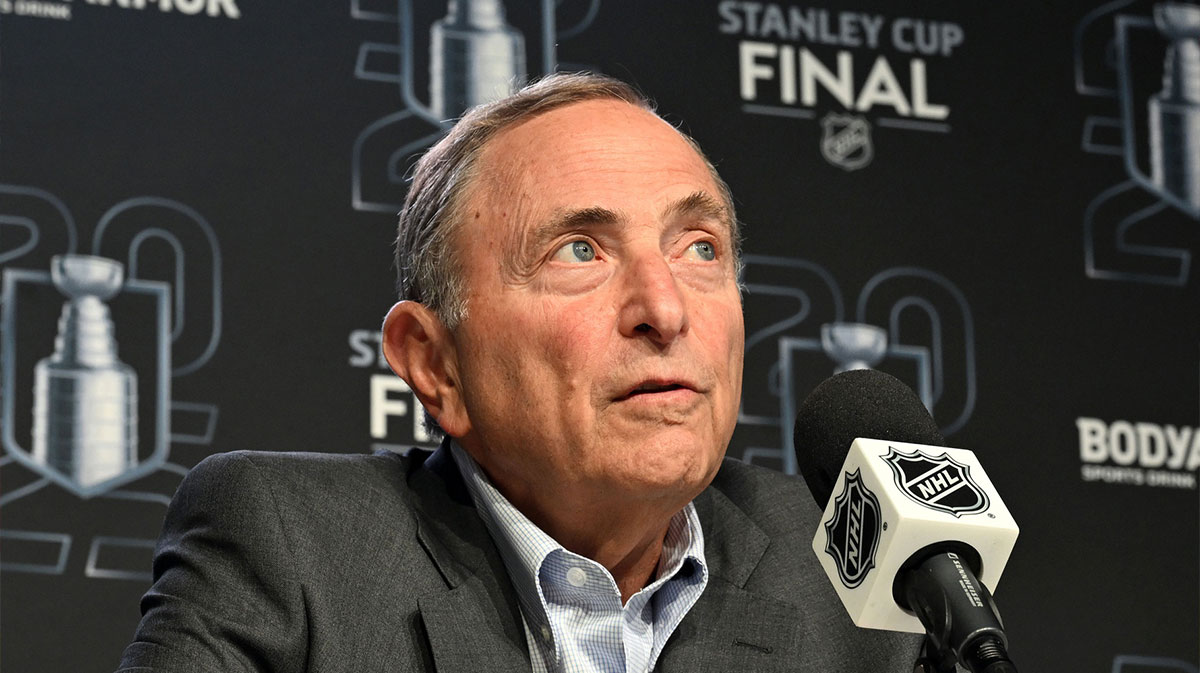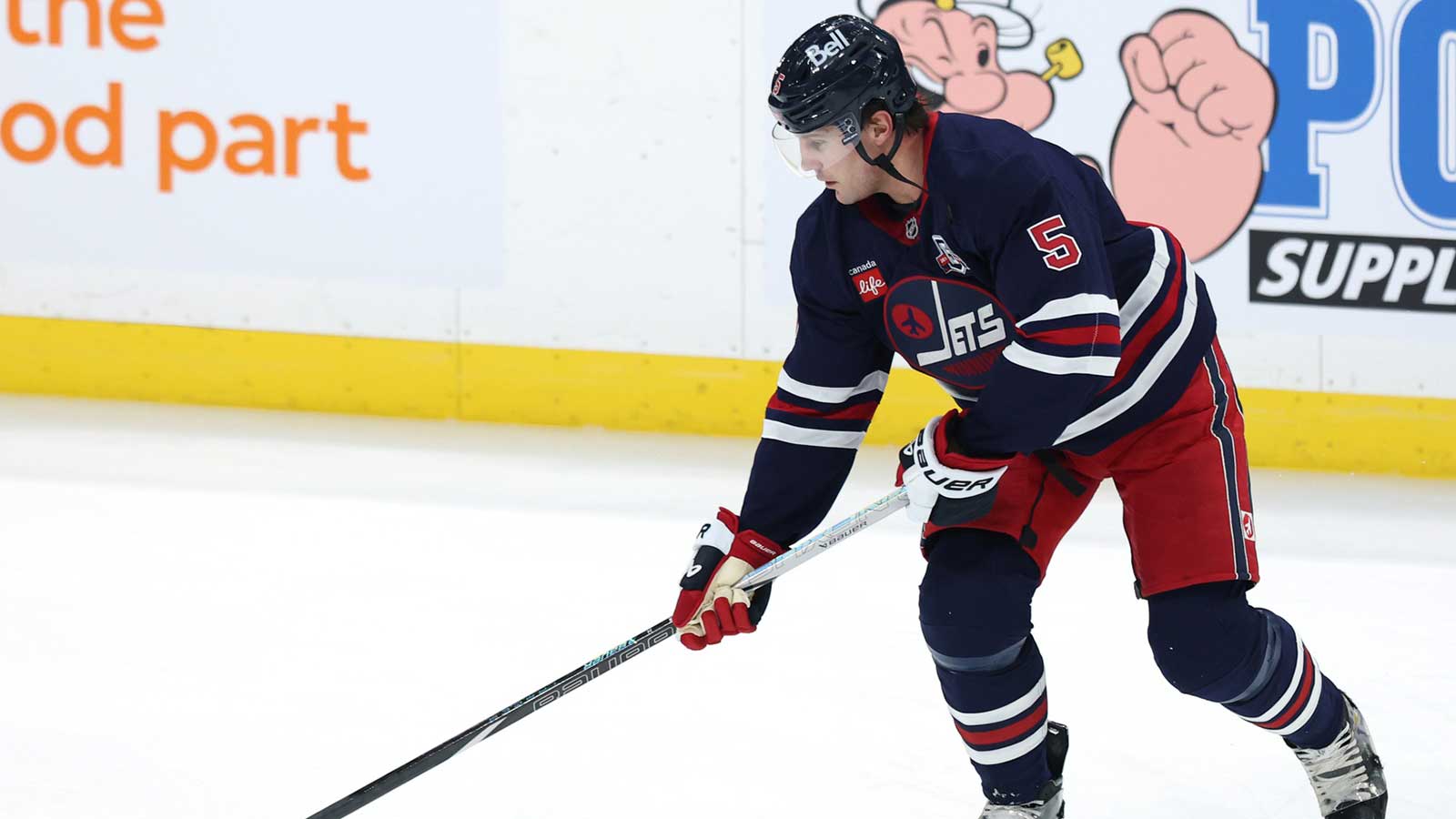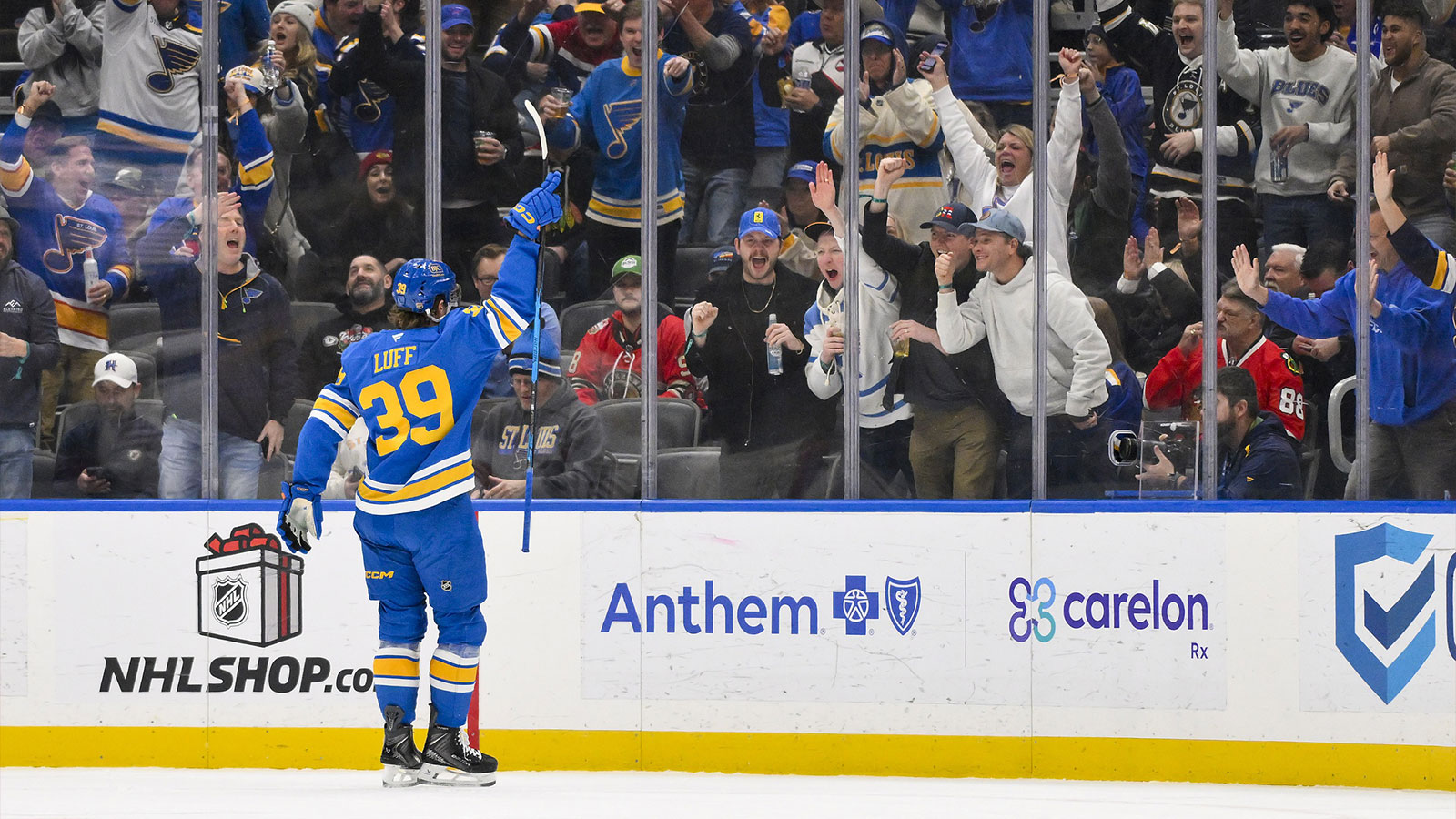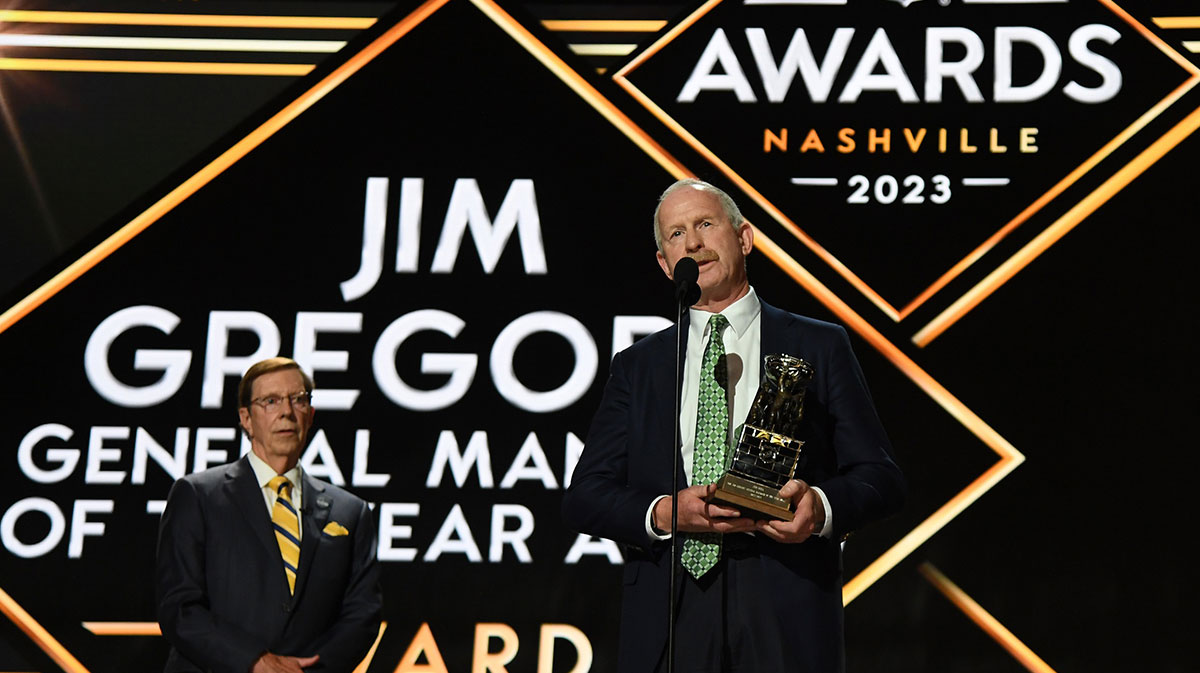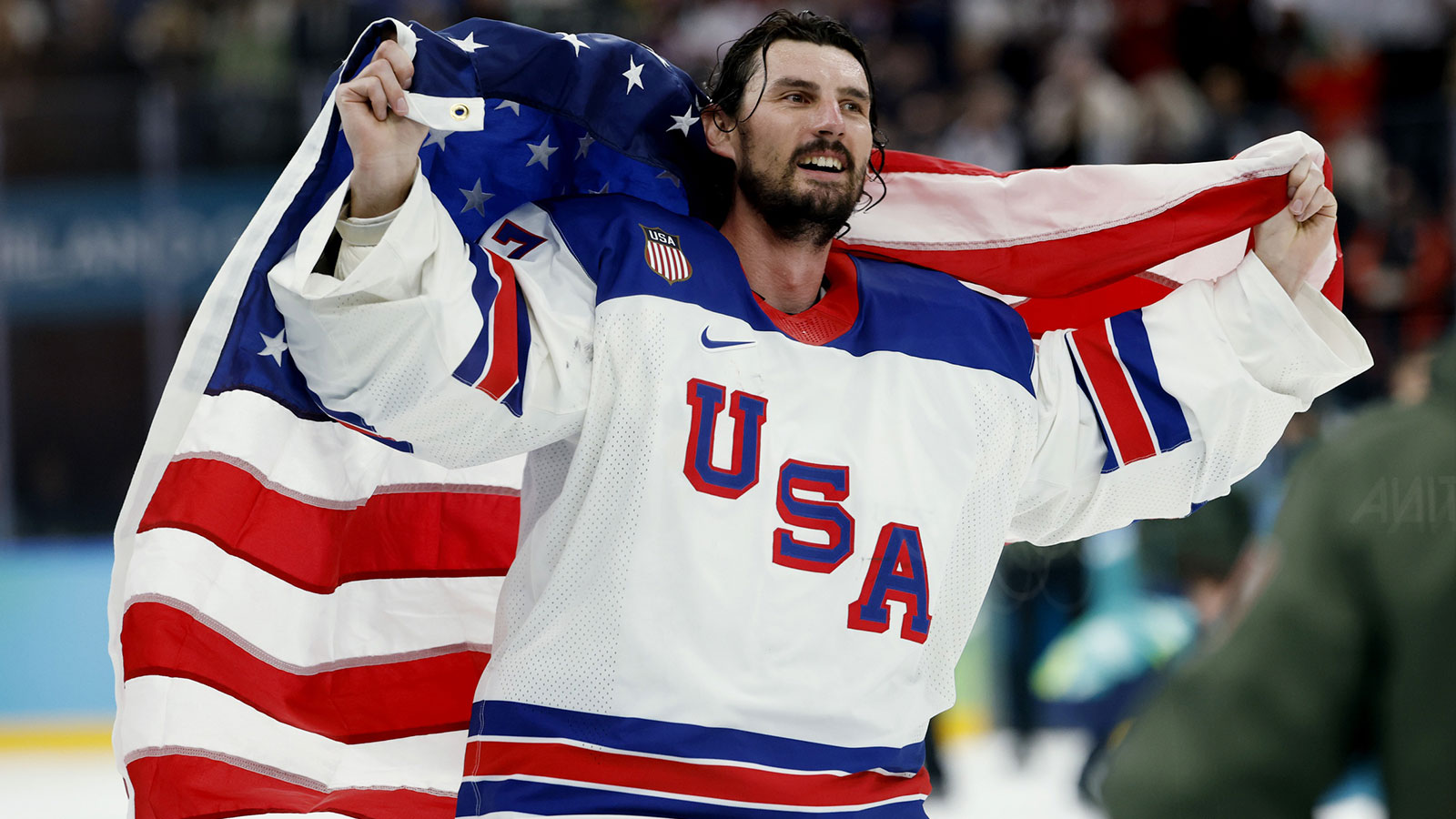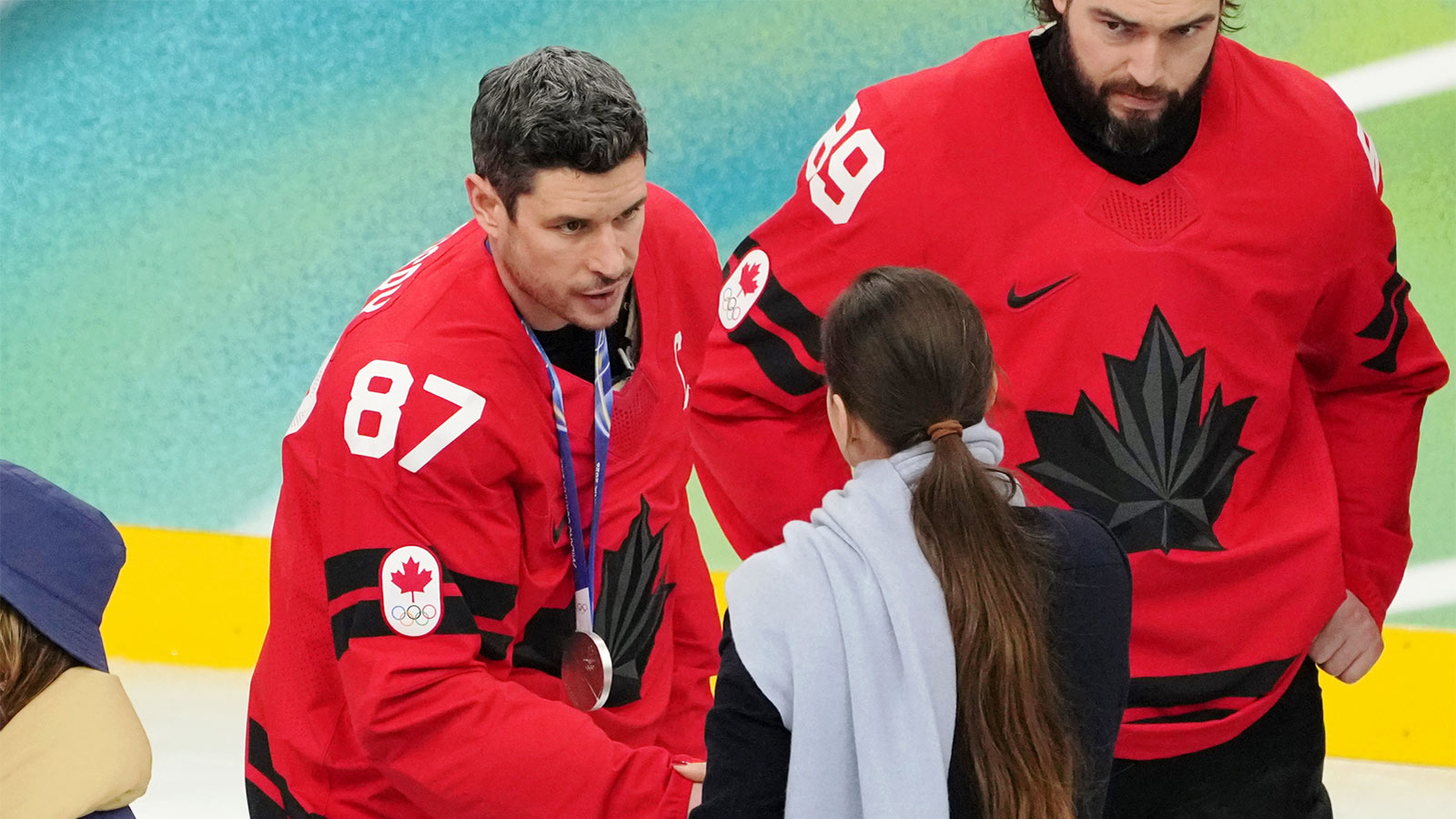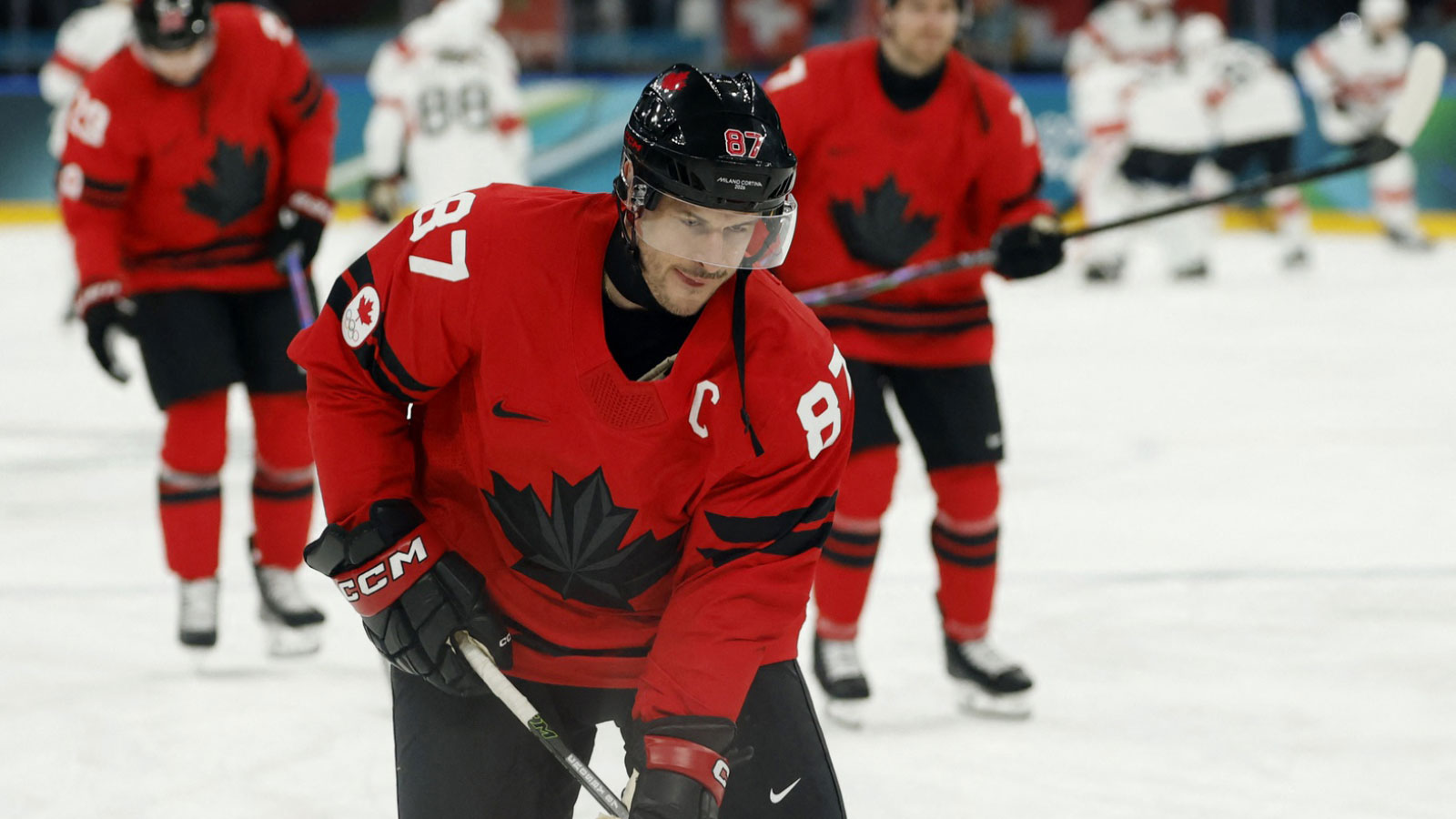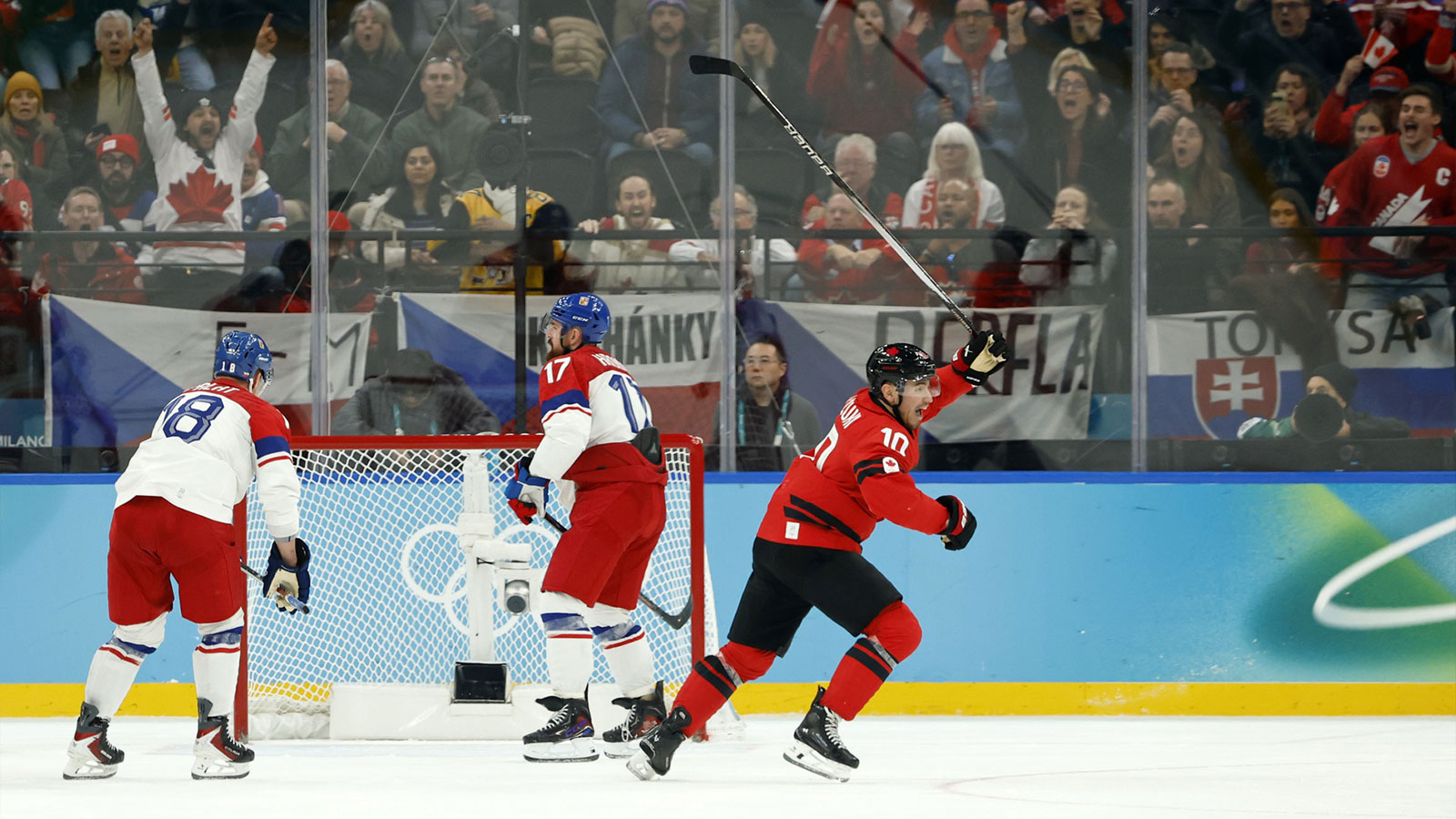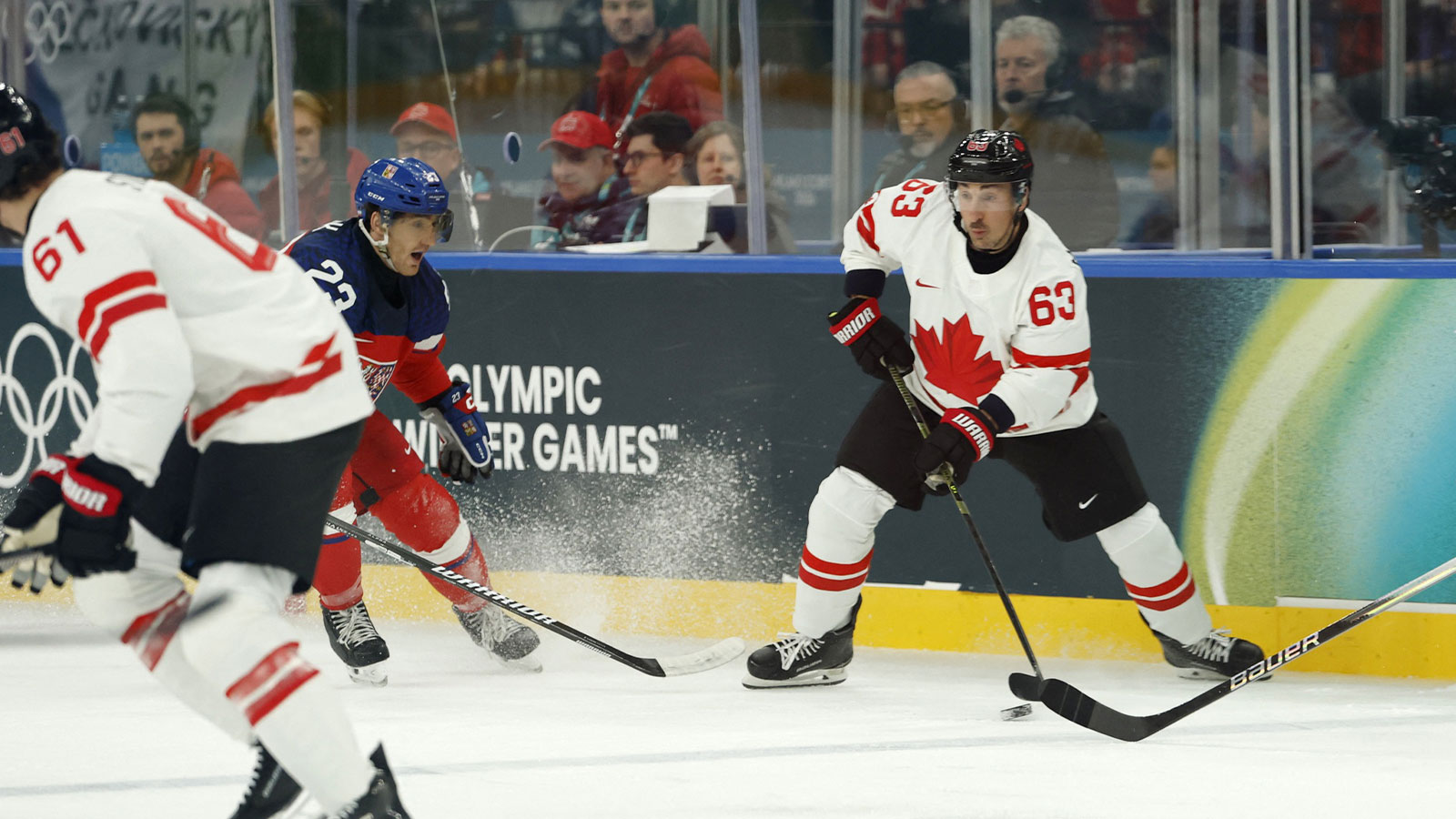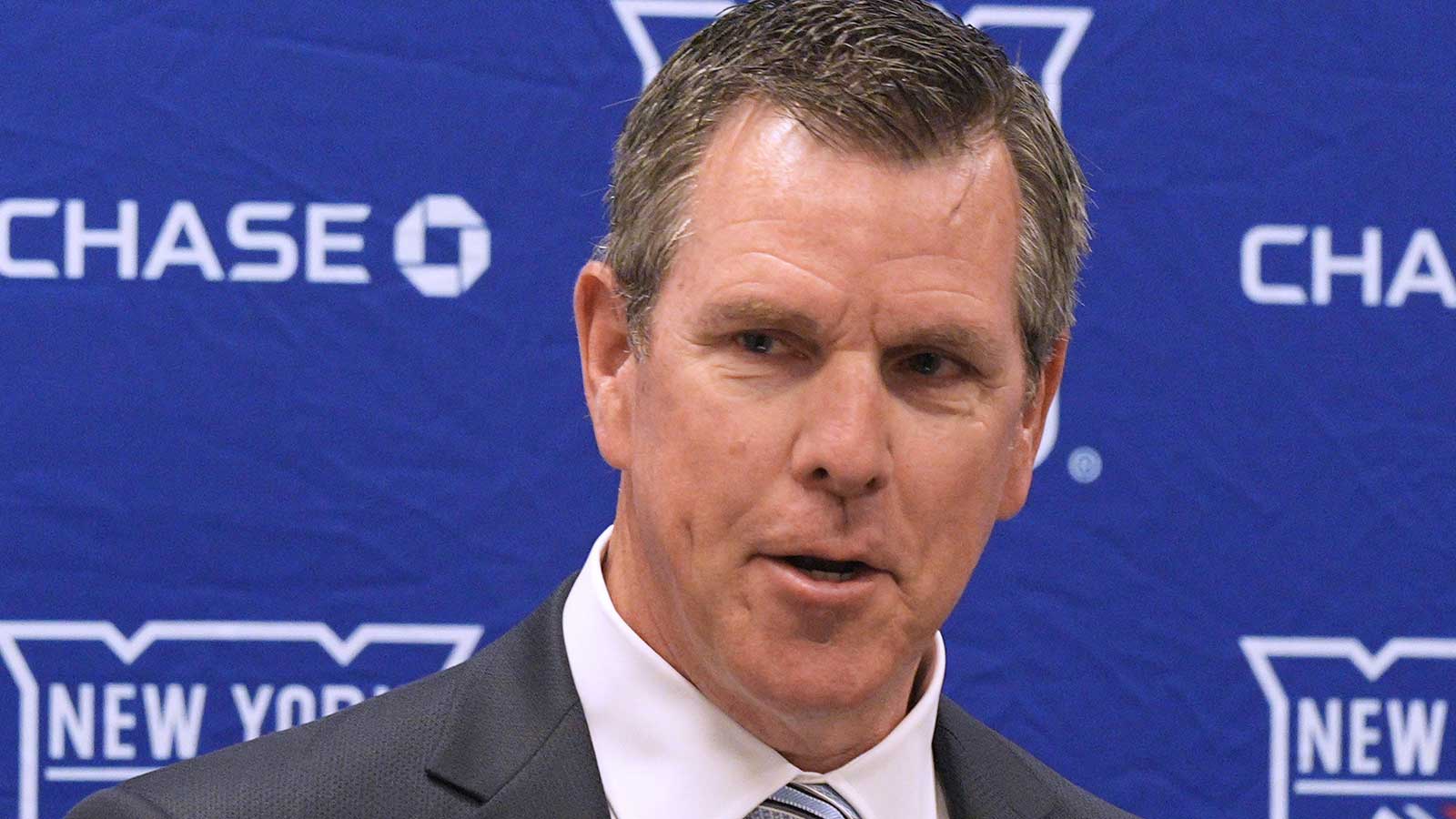The NHL offseason is well underway. A massive trade went down Wednesday night between the Buffalo Sabres and the Utah Mammoth. The New York Islanders are on the clock in the draft. And the Mitch Marner rumors are flying. But NHL commissioner Gary Bettman is reportedly making a big announcement on Friday about the league's CBA. Daily FaceOff insider Frank Seravalli reported on the labor peace on Thursday.
“Sources indicate the NHL and NHLPA are putting the final touches on a Memorandum of Understanding for a four-year extension to their Collective Bargaining Agreement, the framework of which could be announced as soon as Friday ahead of the Draft,” Seravalli reported.
The insider called the labor peace “unprecedented,” especially in the shadow of the 2012-13 lockout that cost nearly half the season. This CBA comes almost a year before the current one expires, saving the NHL from another lockout.
The biggest change with the new CBA is the expansion of the schedule, from 82 to 84 games. Seravalli reports that the preseason will be shortened to four games, with a two-game maximum for veterans. Another big bombshell will excite fans who were upset with the salary cap shenanigans of the previous years,
“A comprehensive playoff salary cap mechanism, which has many machinations to account for player acquisition, will effectively close the LTIR loophole for teams to significantly pad payroll by using injury relief space,” Seravalli reported. The LTIR loophole was popularized by the Lightning and Golden Knights in Stanley Cup runs.
More details on the NHL CBA
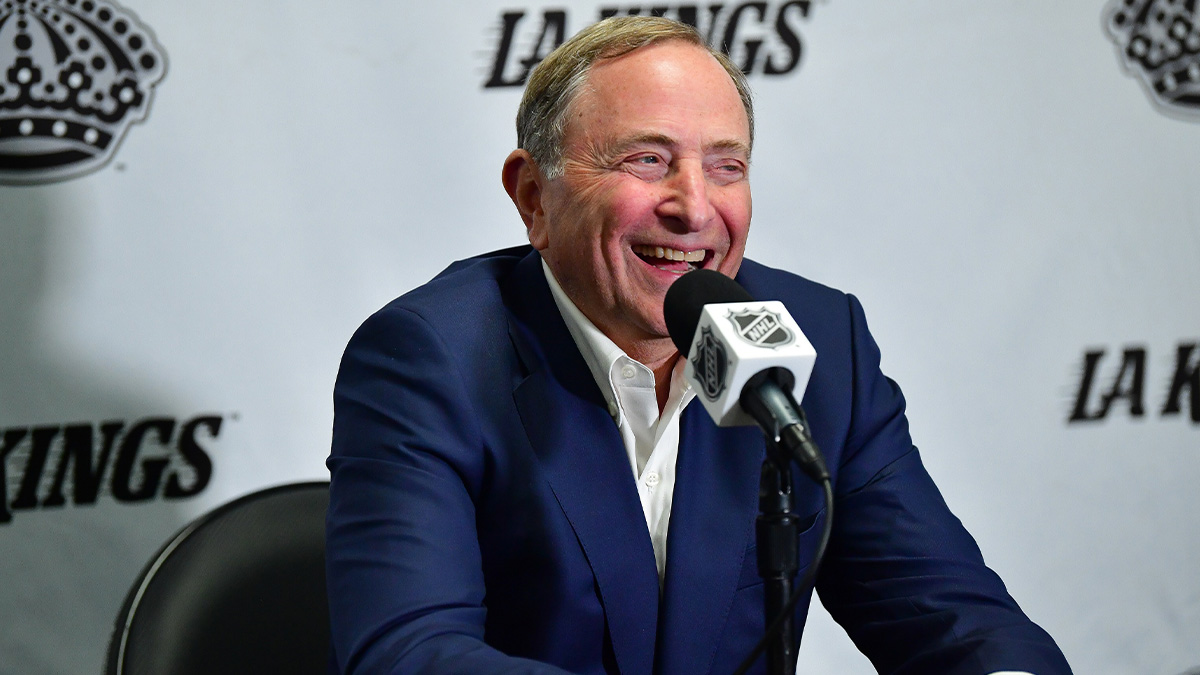
The MOU, according to Seravalli, also confirmed the next two salary cap rises. The cap will be $104 million in 2026-27 and $113.5 million in 2027-28. And the revenue split between ownership and players will remain at 50/50.
One big change for fans to keep an eye on is the elimination of eight-year contracts. The new NHL CBA will limit maximum contract lengths at seven years when a player is re-signing with a team. Free agents will be limited to six-year deals. Could that change what Marner does, with short-term deals a possibility this year? Losing a year of contract security could change his choice.
The Ducks signed Frank Vatrano last season to a unique contract that included deferred money. It's safe to say that the NHL did not like that, as deferred money is now outlawed, per Seravalli.
All of these changes go into effect next summer, so if someone signs a seven-year deal full of deferred money, know it's the end of an era.

